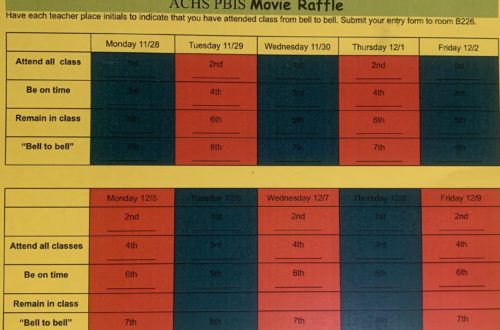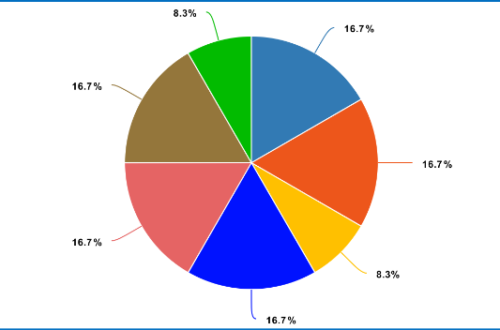Six students speak about their experience at each ACHS campus and the disconnect between each.
Sarah Porter
Staff Writer
Unbeknownst to some, ACHS diverges into four separate campuses: King Street, Minnie Howard, Chance for Change (CFC) and Satellite. Though the King Street Campus is only one of four, many see it as the center point, with the other three campuses acting as subdivisions, rather than existing as four interconnected bodies. This heavy disconnect has separated each campus to the point of being identified as four different high schools, despite them all bearing the title “Alexandria City High School.” To address the unique experience that each campus offers, Theogony interviewed six students were on their perspectives as a student from each campus.
Representing the King Street campus are Miracle Gross, the Class of 2023’s Student Government president, and Amna Shamseldin, the Class of 2023’s Student Government Vice President. During the interview, they both spoke about the student government and leadership class’ attempt to bridge the disconnect between the ACHS campuses.
“There’s a lot of disconnect between Satellite and CFC, and a lot of people don’t even know [Satellite and CFC] exist,” said Gross. “There is not a pipeline between the schools.”
“I didn’t even know where Satellite was until this year. I remember during homecoming time, we visited Satellite, and [students were] saying how during homecoming they didn’t know [about] any of the events [and] where everything was. [The events] has not been broadcasted [to the Satellite campus],” said Shamseldin.
Attempting to bridge this disconnect, the student government shared school spirit events, such as homecoming and spirit week, with the other campuses. However, due to the four campuses’ separation, it proved difficult to spread awareness about these events.
“As far as homecoming and spirit week, we try at least to inform Minnie Howard about the [event] days, but we didn’t really consider that they cannot come to King Street for the events,” said Gross. “We didn’t do much for Chance for Change.”
Other King Street campus-based groups, such as the Academy of Finance and the Titan School store, attempted to recruit Minnie Howard’s involvement through in-person visits and pop-up events.
Gross and Shamseldin say that more can be done to cross the gap between campuses.
“Since we do so much for this school, we could make our events more open. When we put up flyers for senior class events, we only put them up for King Street,” said Shamseldin.
She continued, “[The school could] give leeway to clubs and organizations to [visit each of the] campuses and tell them about what is going on at King Street or vice versa. Satellite students could come to King Street and celebrate the events.”
Particularly, King Street is highlighted as the campus that can adjust to hold school-based events at all campuses, which creates equal opportunities for integral high school experiences.
“If we had events at each campus, not just [King Street, the disconnect could improve]. If we [can] do it at [the King Street Campus], we can do it for other [campuses],” said Shamseldin.
Chance for Change is a campus that attempts to provide students with the tools to develop strategies to practice behavioral management, coupled with behavioral and therapeutic interventions. With a campus of forty students, only five teachers and one counselor on the high school level, CFC students undergo a vastly different experience than on other ACHS campuses. Representing the CFC campus are Paris Rodriguez Jones and Israel Lopez.
Jones and Lopez are say that within Satellite, they appreciate their close connection with teachers and administration, but they feel largely ignored by the larger ACPS school system administrators, who have failed to address students’ needs.
“I do feel there is a disconnect. I feel like [King Street Campus] is the main focus. Obviously, it has to be the main focus because there are a lot of kids there, but [it makes me think], what was the point of making all these little campuses if [administration] is not going to focus on all of them?” said Jones.
Specifically, Jones and Lopez compared the lack of CFC’s resources with the those of other ACHS campuses. Students cannot explore their interests at CFC because of the limited electives available to students. Besides Debate and Art, core classes are the only offered classes.
“We don’t have electives,” said Lopez. “We don’t have [Physical Education]. Our food comes cold. Students who enter CFC, whether voluntarily or by force because of behavioral issues, cannot access King Street Campus resources once a part of CFC.”
“We’re not allowed to go to [King Street] to do any CTE classes or P.E. I cannot go to [the King Street Campus] even though I came [to CFC] by application,” said Jones. “We could not go to the pep rally; we couldn’t do anything.”
The College and Career Center is a place within the King Street campus that offers students support for continuing their education or entering the workforce post-graduation. However, this support system is not offered at CFC, deterring students from understanding and preparing for life after high school.
“I came here on an application because I was having a very hard time at [King Street]. Academically, I am doing really good [at CFC]. There is nothing [at CFC] that will help me think, ‘What am I going to do later on in life?’” said Jones. “I think they are [preparing me for the future], but they don’t have the resources that they need.”
“It would probably be harder for students [at CFC] to be with groups of people [at King Street]. Because groups [at CFC] are so small, people have been here for years, and [if they were to ] go back to a big school, it would feel weird,” said Lopez.
If brought to the King Street campus, Jones and Lopez would feel the changes that distinguish CFC from other campuses. CFC’s close-knit community has helped its students feel attended to and cared for by teachers and classmates.
“I don’t think I’d be able to get used to the fact that [teachers at King Street are disconnected from students]. My teachers actually care about me [at CFC],” said Lopez. “When I was at [King Street], everybody was coming at me. I mean, I know I didn’t act my best, but I still felt like everybody was coming at me. Here, [at CFC], they actually help.”
However, CFC students still suffer the loss of being unable to participate in King Street campus events, proving that the campus disconnect affects students emotionally.
“I’ve always wanted a high school life… I’ve always wanted to go to pep rallies and go to football games and homecoming and prom,” said Jones. “I’d also like to do those types of things as a class, too, you know, not just one person.”
“[If I could change one thing about the administration, it would be] the way they treat us. They act like they don’t care,” said Lopez.
Satellite is a campus directed toward non-traditional students who require a flexible schedule and student-centered support. With primarily online learning, Satellite also offers academic advisors and a student support team. Despite the availability of these resources, some students believe a disconnect exists between Satellite and the King Street campus, preventing Satellite students from accessing opportunities only existing at King Street. Satellite students Heather Schofield and Amarie Butler-Jones spoke on their experience at Satellite.
Even though Satellite is a branch of ACHS, many King Street students undergo their entire high school career without ever learning of its existence. It was not until two years into being an ACHS student that Schofield was informed of Satellite and the opportunities it offered.
“I was at King Street and Minnie Howard for two years before joining Satellite. During my two years at the main campus, I never even heard about Satellite. No counselor or academic advisor had ever brought it up to me,” said Schofield.
It was not until Schofield reached out to her counselor that she understood it existed. Even during her application process to the campus, she was not provided with the full details or view of the Satellite experience.
Furthermore, she agrees with the CFC students that the Satellite campus does not often receive information on events occurring in the King Street campus.
“Once I was in [Satellite], I realized updates— football schedules, clubs and homecoming— Satellite does not receive as much information as King Street,” said Schofield.
For example, Schofield spoke about the recent disconnect between Satellite and King Street during the week of Homecoming and the crucial school spirit events surrounding the dance.
“For homecoming court, there was no information whatsoever about voting. I don’t think it’s the fault of Satellite; there’s just not a healthy communication balance between Satellite and King Street,” said Schofield.
Satellite students do not feel connected to the ACHS administration team, which rarely appears on the Satellite campus. However, Satellite students feel close to Satellite-specific administrators.
“Here at Satellite, I do [feel connected to Satellite administration]. But between here and the main campus [administration], not really. And I feel it is because we do not see them [ACPS administration] as often,” said Butler-Jones.
“With the administration at Satellite, you know everyone’s names. [At the King Street campus] there are so many more students that they have to be concerned about that their priority is not to know everyone’s names, it is really to take correctional action. At Satellite, it is very involved, and [administrators and teachers] really get to know you,” said Schofield.
Despite these challenges, these two Satellite students believe they have received some opportunities that the King Street campus lacks. However, some disparities remain.
“I feel like I’ve received more opportunities to do well because there are more opportunities that are accessible. For example, being able to talk to the teachers one-on-one for extended periods of time. When it comes to clubs, it is more difficult. It becomes difficult to go from Satellite and then to King Street for whatever extracurricular [activity]. I feel it becomes a sticky situation,” said Schofield.
“I could not really participate as much as I would have wanted to [in King Street events],” said Butler-Jones.
Additionally, Butler-Jones echoed that the transportation between campuses needs to be improved, especially so that Satellite students can access after-school activities being held at the King Street Campus.
If given the opportunity, there are a few changes these two Satellite students would request from the administration.
“I would probably just try to let them know it is more important to take into consideration the [Satellite] students even if it isn’t as many as [on King Street]— that we could also be part of [King Street Campus events]. When [we are] not, it is kind of isolating,” said Butler-Jones.
Furthermore, the Satellite campus can collaborate with other campuses to empower students’ voices in addressing these issues.
“I’m not sure if there’s a student council body at the Chance for Change campus, but we have one at Satellite and, with a student government, we could plan things out to see where every campus is at to make sure all the information is getting out and we’re all on the same page,” said Schofield.






